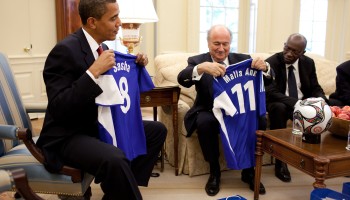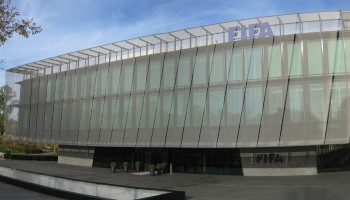The Russian president told Swiss TV channel RTS: “I think people like Mr Blatter, or the heads of big international sporting federations, or the Olympic Games, deserve special recognition. If there is anyone who deserves the Nobel Prize, it’s those people.”
Although Blatter was reelected as president of FIFA in May, he announced his resignation less than a week later as a scandal erupted over alleged high-level corruption in the bidding process for the next two World Cup events - Russia in 2018 and Qatar in 2022.
The International Police Organization (Interpol) had issued red notices for six people implicated in alleged bribery, including two FIFA officials and four corporate executives, on suspicion of racketeering, conspiracy and corruption.
Further pressure was piled on Blatter when the New York Times reported that Jerome Valcke, Blatter's deputy, had been linked by investigators to potentially corrupt transactions worth US$ 10 million.
The sheer size of the scandal sent shockwaves through the media worldwide.
According to a US indictment against 14 suspects, more than a dozen financial institutions may have been used for illegal transactions in a bribery scheme worth US$ 150 million in total and spanning 24 years.
While Blatter himself has not been directly implicated, media sources report that he is under investigation by prosecutors and the FBI. Blatter denies wrongdoing.
According to a statement by Blatter from Saturday and reported by Reuters, FIFA has now passed a resolution in full support of holding the 2018 World Cup in Russia.
Putin has said he doesn't believe “one word of the corruption allegations” against Blatter.
When the scandal first broke, the Russian president accused US prosecutors of attempting to extend their jurisdiction to other states. He argued that none of the alleged crimes had been committed on US territory, and that those implicated in the bribery scandal were not US citizens.






